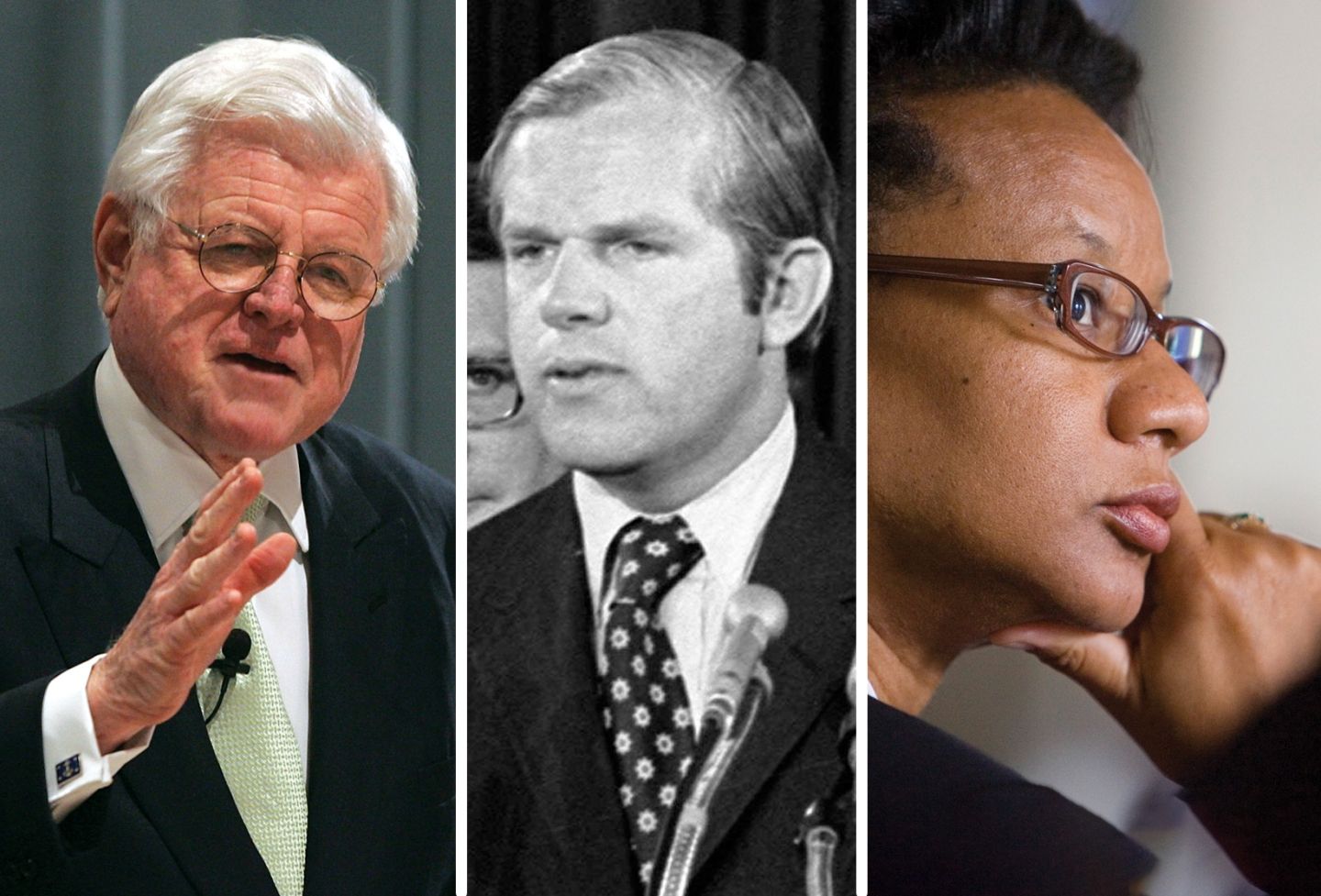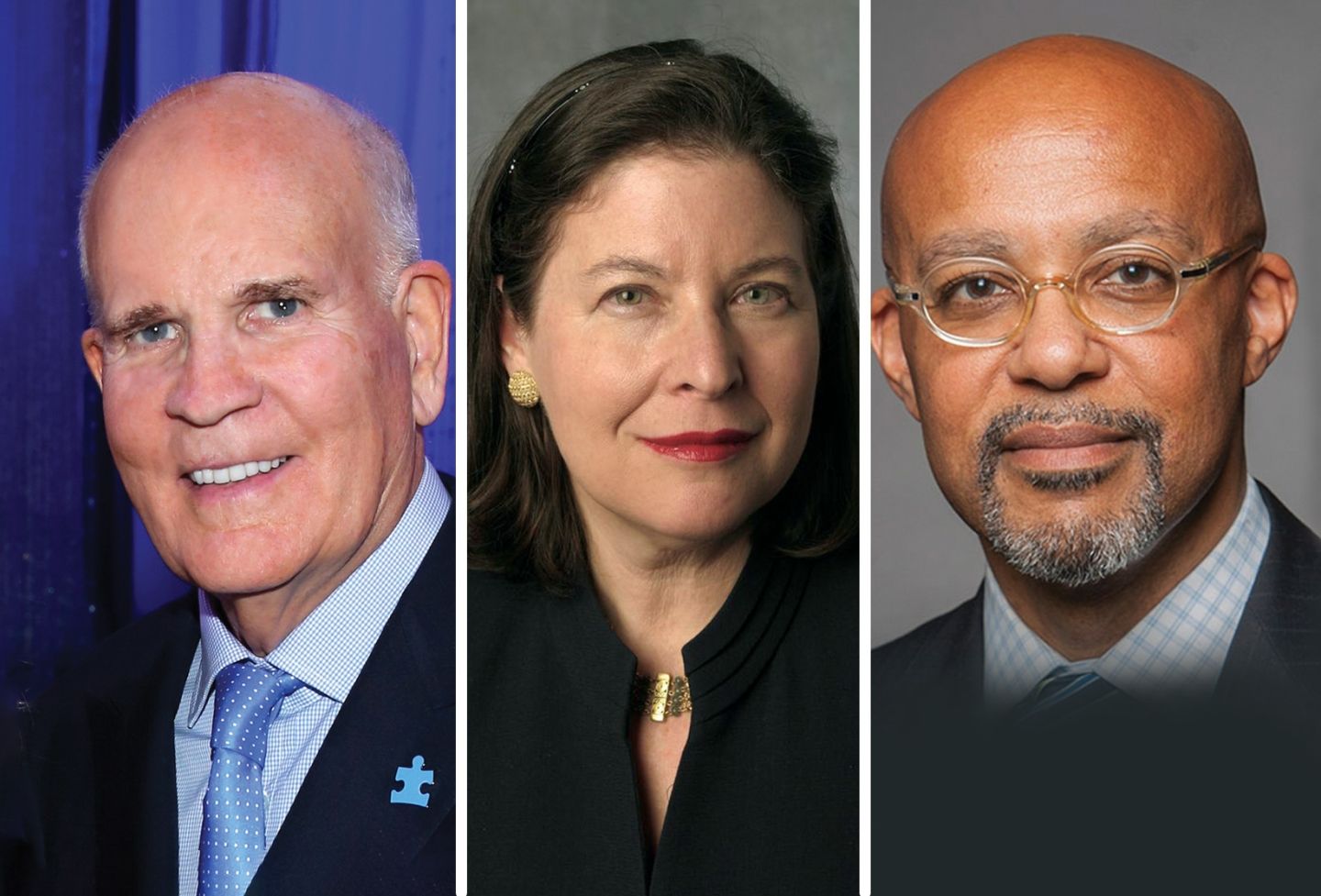Administrative law faculty at UVA Law who study and engage in administrative law issues are both leading a conversation in their scholarship and shaping it in the courts.
Numerous professors have expertise in the operation and procedures of government agencies, some having served at the highest levels of government administration. Jon Cannon served as general counsel for the Environmental Protection Agency. Aditya Bamzai and John Duffy both served as attorney- advisers to the Department of Justice’s Office of Legal Counsel. Some have specialized knowledge in areas such as environmental law, and food and drug law, while others work on more general aspects of the administrative state. Methods range from Bamzai’s originalism-influenced approach, to the economic analyses of Michael Livermore and Jason Johnston, to the empirical research of Josh Fischman.
Aditya Bamzai
- Argued before the U.S. Supreme Court as a rare independent amicus in 2018.
- Served as an attorney-adviser in the Office of Legal Counsel at the Department of Justice.
- Practiced appellate litigation privately and for DOJ’s National Security Division.
- Clerked for Justice Antonin Scalia at the U.S. Supreme Court.
Jonathan Z. Cannon
- Served as general counsel (1995-98) and an assistant administrator (1992-95) for the Environmental Protection Agency.
- A memo he wrote while at the EPA, asserting that the agency has the legal authority to establish and enforce climate change policy, undergirds Massachusetts v. EPA.
- In 2009 was appointed to a National Academy of Sciences committee tasked by Congress to explore climate change.
- Scholarship has examined environmental decisions of the U.S. Supreme Court.
John Duffy
- Served as an attorney-adviser in the Department of Justice’s Office of Legal Counsel.
- Was on the team that won the Supreme Court case TC Heartland v. Kraft Food Brands Group, which curbed patent infringement case “forum shopping.”
- In the field of intellectual property, Duffy has been identified as one of the 25 most influential people in the nation by The American Lawyer and one of the 50 most influential people in the world by the U.K. publication Managing Intellectual Property.
- Clerked for U.S. Supreme Court Justice Antonin Scalia and for Judge Stephen Williams of the U.S. Court of Appeals for the D.C. Circuit.
- Public member of the Administrative Conference of the United States, an independent federal agency charged with recommending improvements to federal administrative processes and procedures.
Josh Fischman
- Research interests include law and economics, empirical methods, judicial decision-making and criminal sentencing.
- Authored a 2014 paper examining administrative adjudication. Authored a 2011 paper that examines immigration appeals in the Ninth Circuit.
- Ph.D. in economics from the Massachusetts Institute of Technology.
Jason Johnston
- Has served on the board of directors of the American Law and Economics Association, on the National Science Foundation’s Law and Social Science grant review panel, and on the board of the Searle Civil Justice Institute.
- Research focuses on issues in financial, and environmental and natural resource regulation.
- Currently working on a book that critically analyzes the foundations of global warming law and policy, and articles on the economics of judicial deference to administrative agencies, and the design of regulatory institutions for scientific assessment.
- Clerked for Judge Gilbert S. Merritt of the U.S. Court of Appeals for the Sixth Circuit.
- Olin Postgraduate Fellow in Law and Economics at Yale Law School.
- Ph.D. in economics, University of Michigan, where he also earned his J.D.
Michael Livermore
- Leading expert on cost-benefit analysis and executive oversight of administrative agencies.
- Author of “Retaking Rationality: How Cost-Benefit Analysis Can Better Protect the Environment and Our Health” (with Richard L. Revesz) and other work examining the interaction of politics, economics and regulation.
- Public member of Administrative Conference of the United States.
- Founding executive director of the Institute for Policy Integrity at New York University School of Law, a think tank dedicated to improving the quality of decision-making by administrative agencies.
- Clerked for Judge Harry T. Edwards of the U.S. Court of Appeals for the D.C. Circuit.
Margaret Foster Riley
- On the board of directors for the Food and Drug Law Institute.
- A member of National Academies Science, Engineering, Medicine, Committee on Assessment of the Care and Use of Dogs in Biomedical Research.
- Research funded by or conducted at the U.S. Department of Veterans Affairs (2019-20).
- Consultant, National Academies of Sciences, Engineering, Medicine, Committee on Pain Management and Regulatory Strategies to Address Prescription Opioid Abuse (2016-17).
- Member, National Research Council Study Committee on Controlled Human Exposure Studies at EPA (2015-16).
- Member, National Research Council Committee on Revisions to the Common Rule for the Protection of Human Subjects in Research in the Behavioral and Social Sciences (2013-14).
Ann Woolhandler
- Worked for a decade as a civil rights lawyer in Louisiana.
- Scholarly interests involve key doctrinal features of the law of federal courts.
- Scholarship has been cited by the U.S. Supreme Court.
Administrative Law at UVA Law
2017-19 Courses
Clinics



